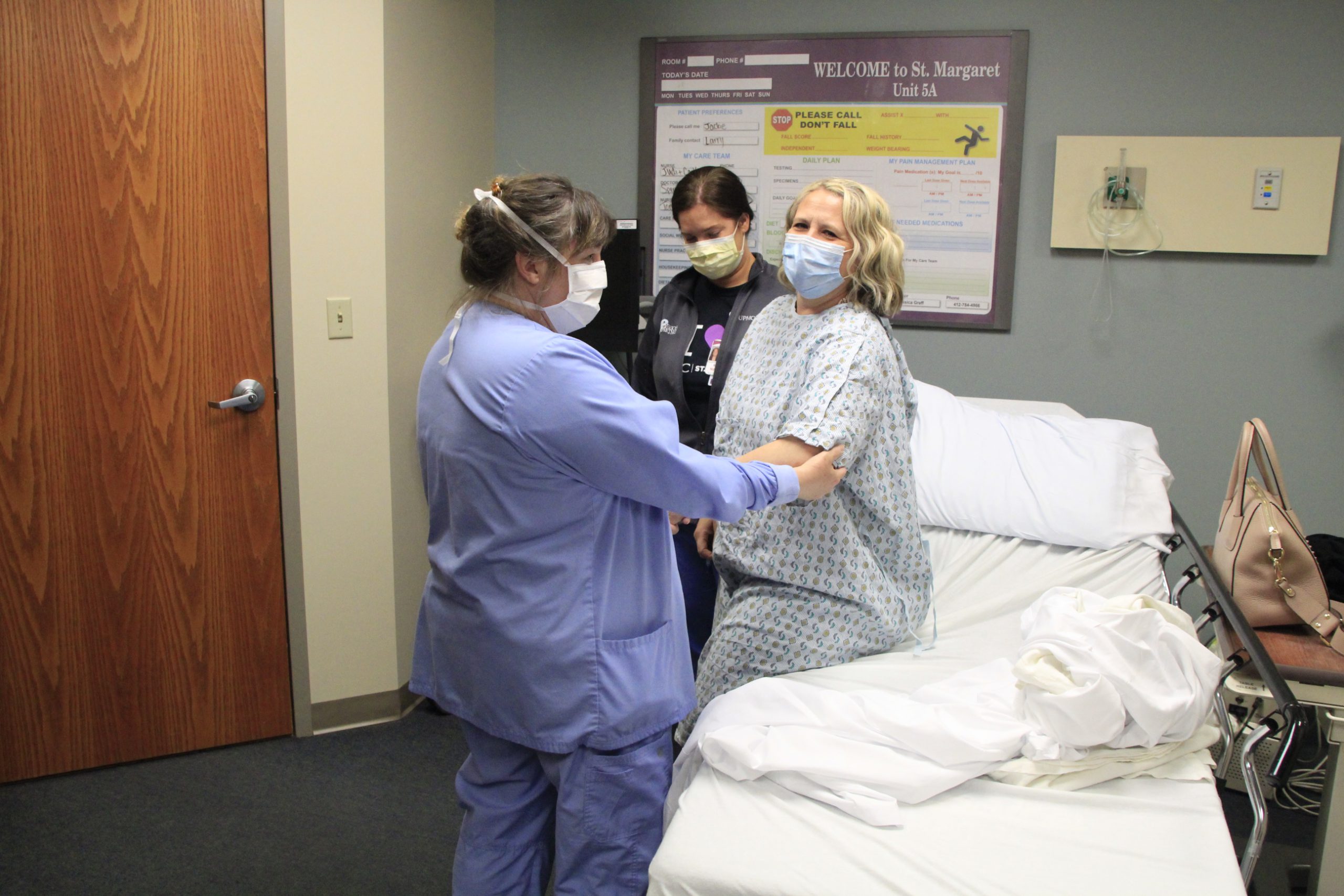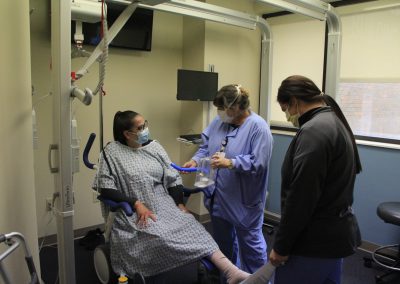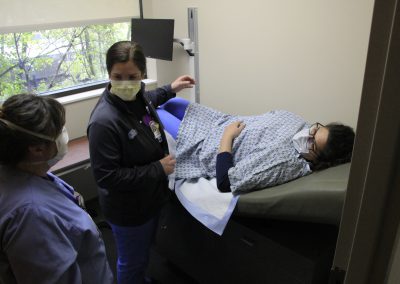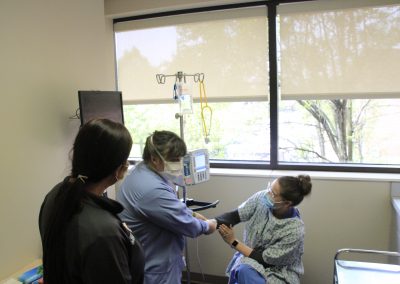
Hourly Rounding: A new WISER course offering
WISER Highlights
Winter 2021
WISER’s New Studio
WISER's New StudioWISER Highlights Winter 2021WISER recently renovated existing space to enhance...
WISER hosts UPMC Radiology Contrast Reaction Course Train the Trainer Event
WISER hosts UPMC Radiology Contrast Reaction Course Train the Trainer EventWISER Highlights ...
WISER Welcomes New Staff
WISER Welcomes New StaffWISER Highlights Winter 2021 WISER welcomed three new full-time team...
Director’s Corner
Director’s Corner with Dr. Paul PhrampusWISER Highlights Winter 2022Greetings, Colleagues As we...
Developed by:
Kristen M. Killian, DNP, BS, RN, ENLS
Advanced Clinical Education Specialist, UPMC St. Margaret
Jennifer Parrotte, MSN, RN
Director of Organization Development, Nursing Education and Research
Magnet Program Director, UPMC St. Margaret
Hourly Rounding is a concept that is utilized as a best practice standard of care to increase staff responsiveness to call lights and improve the patient experience (Johnson and Bryant, 2020). When low responsiveness scores from patient surveys on discharge showed a need for additional training and education for staff, Kristen M. Killian and Jennifer Parrotte, developed a new course for staff.
This course was designed as a hybrid course with both online video-based learning, as well as simulation learning, using standardized patients to review concepts. The video-based training included a review of the Five Ps of Hourly Rounding (pain, potty, pump, positioning, and possessions), review of facility protocols and the importance of the concept to both patients and staff. Examples of both an initial hourly round and a subsequent round were included.
A mega-simulation experience was created for participants to demonstrate concepts learned from the video and act out assessment of the Five Ps. Standardized patients acted as the four patients the participants were responsible for seeing, each focusing on a separate P concept, and participants were able to interact with live patients and demonstrate doing an effective round. Participants were then given feedback on their simulation during a debriefing session and ranked as a novice, competent or expert participant.
In the first burst of training, 124 participants were enrolled in the online video-based learning and attended a mega-simulation session. At the training completion, data collection is ongoing, but at the one-month mark post-intervention, responsiveness score had increased to around 65%.
Developed by:
Kristen M. Killian, DNP, BS, RN, ENLS
Advanced Clinical Education Specialist, UPMC St. Margaret
Jennifer Parrotte, MSN, RN
Director of Organization Development, Nursing Education and Research
Magnet Program Director, UPMC St. Margaret
Hourly Rounding is a concept that is utilized as a best practice standard of care to increase staff responsiveness to call lights and improve the patient experience (Johnson and Bryant, 2020). When low responsiveness scores from patient surveys on discharge showed a need for additional training and education for staff, Kristen M. Killian and Jennifer Parrotte, developed a new course for staff.
This course was designed as a hybrid course with both online video-based learning, as well as simulation learning, using standardized patients to review concepts. The video-based training included a review of the Five Ps of Hourly Rounding (pain, potty, pump, positioning, and possessions), review of facility protocols and the importance of the concept to both patients and staff. Examples of both an initial hourly round and a subsequent round were included.
A mega-simulation experience was created for participants to demonstrate concepts learned from the video and act out assessment of the Five Ps. Standardized patients acted as the four patients the participants were responsible for seeing, each focusing on a separate P concept, and participants were able to interact with live patients and demonstrate doing an effective round. Participants were then given feedback on their simulation during a debriefing session and ranked as a novice, competent or expert participant.
In the first burst of training, 124 participants were enrolled in the online video-based learning and attended a mega-simulation session. At the training completion, data collection is ongoing, but at the one-month mark post-intervention, responsiveness score had increased to around 65%.
WISER Highlights – Winter 2021
WISER’s New Studio
WISER's New StudioWISER Highlights Winter 2021WISER recently renovated existing space to enhance audio and video production as well as remote education capability. We had previously set up a...
WISER hosts UPMC Radiology Contrast Reaction Course Train the Trainer Event
WISER hosts UPMC Radiology Contrast Reaction Course Train the Trainer EventWISER Highlights Winter 2021-Christa Brown A Contrast Reaction Safety Class is offered monthly at WISER’s main center in...
WISER Welcomes New Staff
WISER Welcomes New StaffWISER Highlights Winter 2021 WISER welcomed three new full-time team members in November, filling essential roles to sustain the simulation operations team and the...
Director’s Corner
Director’s Corner with Dr. Paul PhrampusWISER Highlights Winter 2022Greetings, Colleagues As we begin 2022, I can’t help but think what an interesting year 2021 was to reflect upon. The entire...




